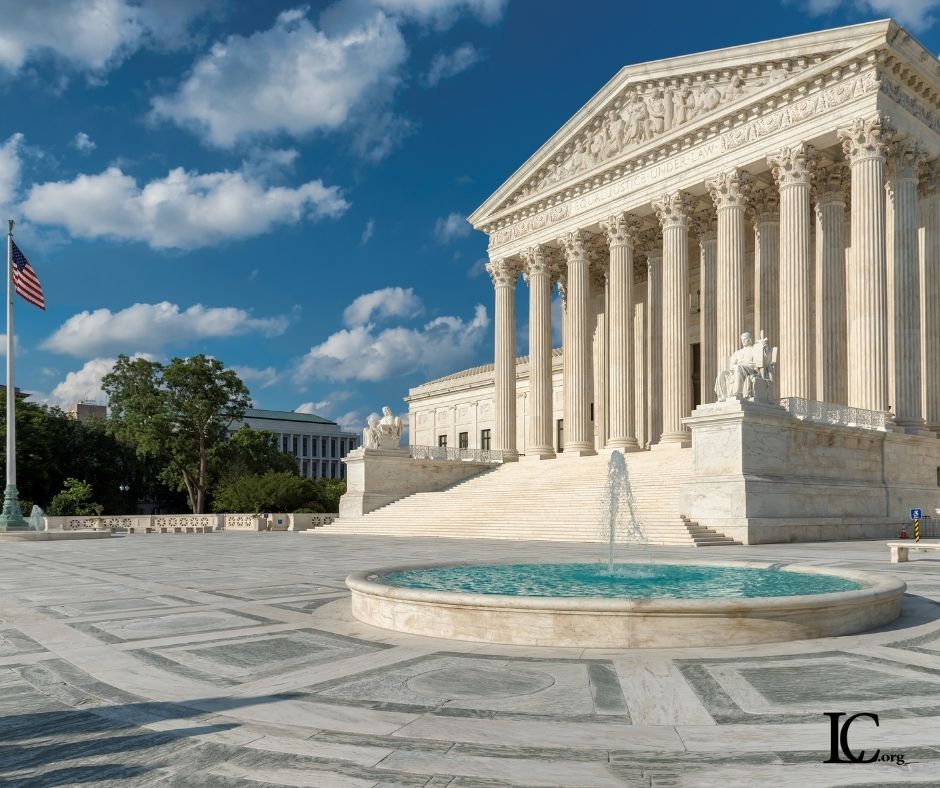Today, the U.S. Supreme Court will hear United States v. Skrmetti, a case that will determine if a Tennessee law that protects children from harmful puberty blockers, hormones, and medically mutilating surgeries is constitutional. The case could have vast implications for the 25 other states with similar laws protecting children.
Oral Argument will begin at 10 a.m. EST. The Supreme Court is expected to make a decision no later than the end of June 2025.
While the Biden-Harris administration argues that Tennessee’s law amounts to sex-based discrimination, ultimately this case centers around a state’s ability to regulate the practice of medicine and whether parents have a “right” to subject their children to experimental medical interventions.
Tennessee’s “Save Adolescents from Experimentation (SAFE) Act” prohibits medical professionals from administering these procedures and allows children injured during violations of this law, or their parents, to sue those responsible. To date, the Sixth Circuit Court of Appeals has upheld both Tennessee and Kentucky SAFE Act laws, while the Seventh, and Eleventh Appeals Courts have upheld similar laws protecting children in Alabama, Florida, and Indiana. These laws and rulings all coincide with international evidence that reveals “remarkably weak evidence” that these interventions help children, along with surgery victims offering powerful testimony regretting their irreversible mutilation, and growing skepticism among American and European pediatricians who call for these procedures to stop.
Liberty Counsel filed an amicus brief in the case stating that the High Court’s decision could “reverberate beyond this case” affecting how challenges to laws involving talk therapy and counseling are decided.
Since Liberty Counsel has represented thousands of licensed counselors who diagnose and treat gender confusion with talk therapy, it therefore has a vital interest in how the High Court scrutinizes these state bans on child medical mutilation. Liberty Counsel recommends that the High Court decide this case by “making a clear distinction between talk therapy—which is pure speech protected by the First Amendment—and invasive medical interventions involving dangerous drugs and experimental surgery—which is most often appropriately categorized as conduct that the state may regulate.”
In the brief, Liberty Counsel suggests SCOTUS be “mindful” that using a lesser tier of scrutiny to review laws banning invasive medical interventions on children, which may be appropriate here, could also “mislead” lower courts to use that same framework to evaluate laws involving counseling and talk therapy that help minors with gender confusion and unwanted same-sex attractions. Ultimately, Liberty Counsel asks the High Court to make a clear distinction between talk therapy and invasive medical interventions because different levels of judicial scrutiny should apply to each.
“This Court must preserve the essential distinction between laws that regulate conduct and those that restrict speech,” stated Liberty Counsel. “The Court should make a clear distinction when determining the appropriate level of judicial scrutiny in the context of laws that regulate invasive and experimental medical interventions involving dangerous drugs and life-altering surgeries—which is most often appropriately considered conduct—from counseling or talk therapy—which is speech.”
At least 26 states now have laws banning these experimental and often irreversible procedures on minors. The Biden-Harris administration joined the case in 2023 after several sets of parents sued Tennessee to obtain the right to mutilate their children. They are appealing the decision by the Sixth Circuit Court of Appeals that ruled that both Tennessee and Kentucky mutilation bans are constitutional.
The Sixth Circuit decided that bans on these “experimental” interventions for both sexes “lack[ed] any of the hallmarks of sex discrimination.” The Sixth Circuit also noted the Equal Protection Clause does not prohibit a state from banning gender interventions on minors if the bans are reasonably and rationally related to a legitimate state interest, such as protecting children from the health risks of “experimental” drugs and procedures.
Liberty Counsel Founder and Chairman Mat Staver said, “There is no fundamental right to subject children to dangerous drugs and irreversible, experimental surgeries. However, talk therapy is a free speech right protected by the First Amendment, and allows a counselor to help a client who does not want to be chained to unwanted desires, behaviors, or confusion. The Sixth Circuit rightly ruled that Tennessee and Kentucky are free to protect children, but the U.S. Supreme Court now has the chance to make the distinction between conduct and speech so that the free speech rights of licensed counselors are protected.”
For more information about state laws protecting against gender ideology, visit Liberty Counsel’s website here.
















